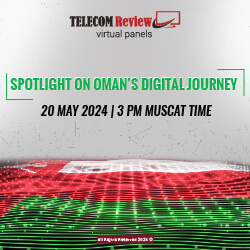In an exciting development, stc Bahrain launched its first-ever RedCap use cases trial in Bahrain. This milestone achievement showcases its commitment to innovation and cutting-edge technology.
RedCap: Revolutionary Wireless Technology
RedCap, an acronym for Reduced Capability, represents a revolutionary wireless technology that belongs to the service category of Massive Machine-Type Communications (mMTC) in the dynamic 5G landscape. With the commercial network now fully equipped for this remarkable evolution, stc is embarking on this groundbreaking journey towards a future of enhanced connectivity and limitless possibilities.
3GPP Release 17 has introduced RedCap technology, with the goal of minimizing UE costs by simplifying various aspects such as complexity, power consumption, supported bandwidth, number of antennas, and modulation and demodulation capabilities.
Pioneering RedCap Network Readiness for Commercialization
"We are excited to be the first operator in Bahrain to enable RedCap Network Readiness for Commercialization," said Eng. Ahmed Al Sharif, CTDO of stc Bahrain. He emphasized that RedCap has the potential to revolutionize the way industries, people, and the ecosystem are connected, enabling new and innovative applications related to IoT connectivity, such as smart wearables, AR/VR, CCTV, and industry M2M communication, with less complexity and lower cost, thanks to its moderate speeds and low latency.
The RedCap use cases trial conducted on the stc live network demonstrated the successful capabilities of RedCap devices in accessing the network and sharing resources alongside regular 5G devices. The streamlined capabilities of RedCap devices enable them to operate efficiently with reduced spectrum usage, leading to lower processing power requirements and overall cost reduction.
The launch of the RedCap trial in Bahrain marks a significant milestone for stc Bahrain and demonstrates the company’s commitment to innovation and leadership in deploying next-generation wireless technologies. It also paves the way for the development of RedCap in the Middle East and North Africa region.
Testing Passive IoT Technology
Moreover, stc Bahrain's experimentation with passive IoT technology represents a significant stride in reshaping the IoT landscape. Unlike conventional IoT devices that actively emit signals, passive IoT sensors can harvest energy from the surrounding environment, enabling them to power themselves and transmit data without the need for external power sources.
This revolutionary technology has the potential to transform IoT applications by offering seamless coverage over a wide area using a single base station. By exploring and testing this innovative solution, stc Bahrain is paving the way for smarter and more efficient IoT deployments.
stc Bahrain aims to equip Bahrain with the latest technology and elevate its global position in digitalization. The implementation of passive IoT will create new opportunities in sectors such as environmental monitoring and healthcare, serving both consumers and businesses.
Achieving Comprehensive Digitalization
The China Mobile Research Institute emphasizes the importance of IoT technologies with lower costs, lower power consumption, longer life, wider connections, and easier maintenance. These attributes are seen as critical elements for achieving comprehensive digitalization and reaching the ambitious target of 100 billion connections.
In conclusion, stc Bahrain's commitment to innovation and delivering better results for its customers is evident through its RedCap use cases demo and testing of passive IoT technology. Through its comprehensive awareness campaign, the company is determined to educate and inspire individuals and organizations to embrace these advancements and unlock new possibilities in connectivity and communication.










